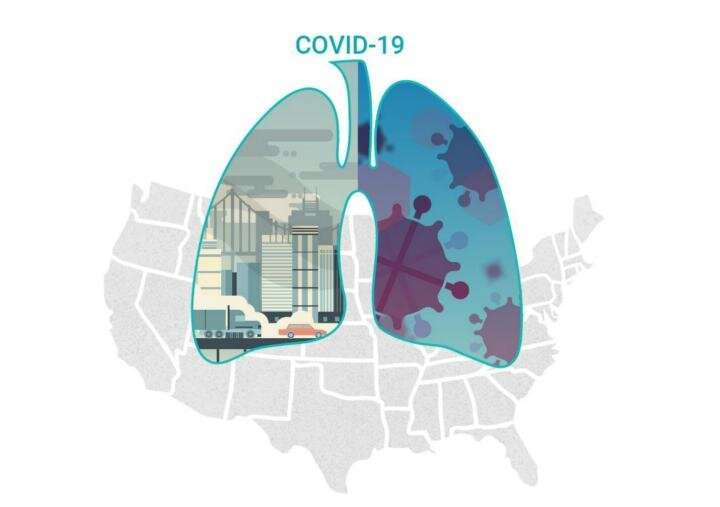Urban air pollution may make COVID-19 more severe for some

As the pandemic persists, COVID-19 has claimed more than 200,000 lives in the United States and damaged the public health system and economy. In a study published on September 21 in the journal The Innovation, researchers at Emory University found that long-term exposure to urban air pollution may have made COVID-19 more deadly.
"Both long-term and short-term exposure to air pollution has been associated with direct and indirect systemic impact on the human body by enhancing oxidative stress, acute inflammation, and respiratory infection risk," says Donghai Liang of Emory University, co-first author on the paper along with Liuhua Shi.
The researchers analyzed key urban air pollutants, including fine particle matter (PM2.5), nitrogen dioxide (NO2), and ozone (O3), across 3,122 counties in the United States from January to July. To examine the association between ambient air pollutants and the severity of COVID-19 outcomes, they investigated two major death outcomes, the case-fatality rate (i.e., number of deaths among the people who are diagnosed with COVID-19) and the mortality rate (i.e., number of COVID-19 deaths in the population). The two indicators can imply the biological susceptibility to deaths from COVID-19 and offer information of the severity of the COVID-19 deaths in the general population, respectively.
Of the pollutants analyzed, NO2 had the strongest independent correlation with raising a person's susceptibility to death from COVID-19. A 4.6 parts per billion (ppb) increase of NO2 in the air was associated with 11.3% and 16.2% increases in COVID-19 case-fatality and mortality rate, respectively. Moreover, Liang and his colleagues discovered that just a 4.6 ppb reduction in long-term exposure to NO2 would have prevented 14,672 deaths among those who tested positive for the virus. The team also observed a margin-ally significant association between PM2.5 exposure and COVID case-fatality rate, whereas no notable associations were found with O3.
"Long-term exposure to urban air pollution, especially nitrogen dioxide, might enhance populations' susceptibility to severe COVID-19 death outcomes," says Liang. "It's es-sential to deliver this message to public health practitioners and policymakers in order for them to consider protecting vulnerable populations that lived in historically high NO2 pollution including the metropolitan areas in the state of New York, New Jersey, California, and Arizona."
Liang also noted that air pollution is a health equity issue: the burden of NO2 pollution is not evenly shared. People with lower income and people of color often face higher exposure to ambient air pollution and may experience a more significant impact from the pollutants. Not having many choices in residency, many live by highways or industrial sites, which makes them especially vulnerable to air pollution.
"The continuations and expansions of current efforts to lower traffic emissions and ambient air pollution might be an important component of reducing the population-level risk of COVID-19 case-fatality and mortality in the United States," says Liang.
More information: Donghai Liang et al, Urban Air Pollution May Enhance COVID-19 Case-Fatality and Mortality Rates in the United States, The Innovation (2020). DOI: 10.1016/j.xinn.2020.100047


















